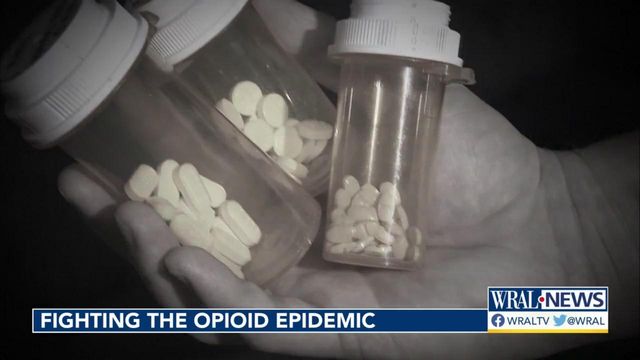Triangle campaign hopes to break stigma for those addicted to opioids
MacDonald lost her son Michael to a fentanyl overdose. She said his addiction stemmed from the grief over loss of his brother, Steven, in 2012 to gun violence.
Posted — UpdatedAccording to the CDC more than 93,000 people overdosed in 2020 in the U.S., and opioids account for about 60% of those deaths.
Know Hope North Carolina has 3 billboards that feature the photos of 200 people lost to drugs — two in Medbane on N.C. Highway 40 and one in Hope Mill.
"The purpose of the billboards is to remember those that we've lost and to support those that are in recovery and give hope to the folks that are still struggling," said Frieda MacDonald, who created the ad.
MacDonald lost her son Michael to a fentanyl overdose. She said his addiction stemmed from the grief over loss of his brother, Steven, in 2012 to gun violence.
"I wanted to somehow get together on a banner and be able to talk to people about my loss," she said. "And other families started reaching out to me and saying, I would like to add my person to your banner."
The Opioid Summit is being held virtually this week featuring 60 speakers on topics ranging from finding recovery resources to what the state is doing to combat the crisis.
"Were taking the information with love and compassion into people's hearts," said Marilyn Shannon, an organizer with the People's Opioid Summit.
Shannon said that she hopes to bring awareness to others about "how they can support themselves, how they can help a loved one, how they can be on the lookout for someone that they didn't even realize might be struggling."
Freida said she hopes the campaign will break the stigma of drug addiction so that more people reach out for help.
Related Topics
• Credits
Copyright 2024 by Capitol Broadcasting Company. All rights reserved. This material may not be published, broadcast, rewritten or redistributed.






